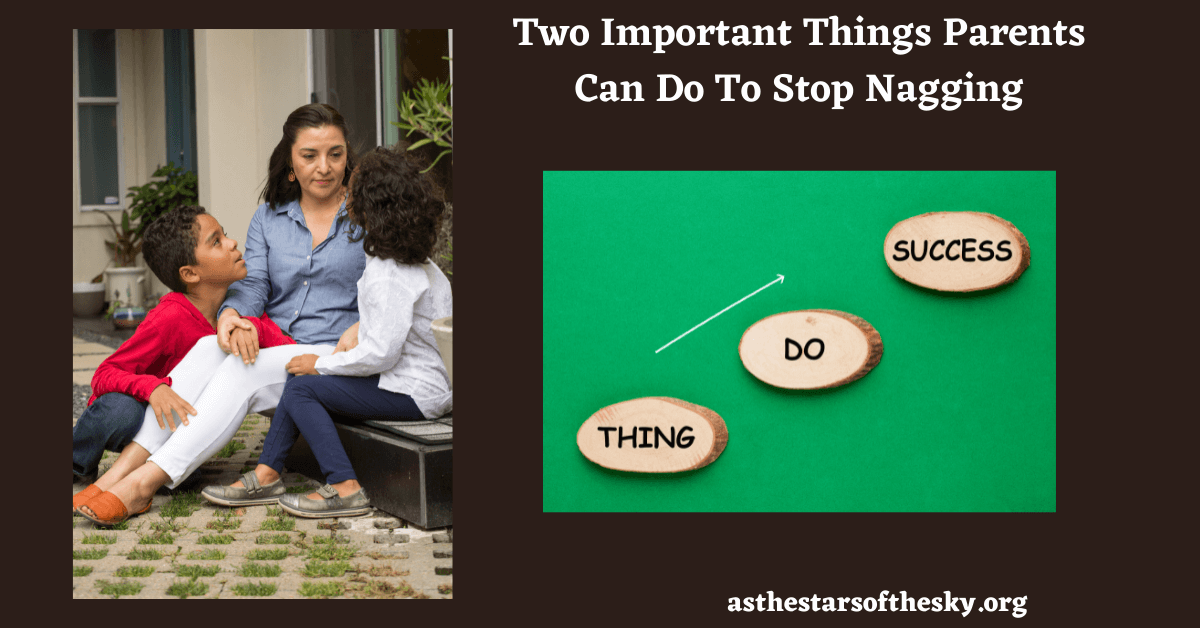Nagging hurts the parent-child bond. There is no doubt about that. Last week, my blog post was 6 Reasons Why Parents Should Stop Nagging and this week it is about how to stop nagging. Once we parents get into the habit of nagging, it’s not easy to stop, so it is up to us to learn how to stop. I hope that you will implement these two helpful tips:
1. Find out why you nag.
One of the main reasons that we nag is out of fear for our children. Mandie Shean, psychologist and teacher, suggests that we need to allow our children to fail: “The problem is, in our efforts to protect children, we take valuable opportunities for learning away from them. Failure provides benefits that cannot be gained any other way. Failure is a gift disguised as a bad experience. Failure is not the absence of success, but the experience of failure on the way to success.”
Another factor is how we ourselves were raised. Did you have a parent who nagged you to do things? If so, you are more likely to be a nagger too.
Ask yourself what triggers you to nag. Can you accomplish your goals without nagging? The answer is, of course, a resounding yes!
2. Find another way to handle the situation rather than nagging.
Finding an alternative way to handle a problem or challenge requires controlling our emotions and planning ahead of time. Have your children participate in planning. Prepare visual aids that will give them direction and serve as constant reminders.
For example: the goal is to have your son do his homework every day before dinner. Talk with him about it. Prepare a chart similar to the one that is suggested in the website article from the messymotherhood.com below with all the chores and other tasks he is required to do on a daily or weekly basis. Talk with him about when he can complete all that he has to do and how much time should be allocated for each. Prepare a chart that will be an important visual aid for him to remember. Once he completes a chore, he will be able to check it off.
Talk with him about what happens if he does not follow through as planned. Let him know the consequences in advance.
Instead of nagging him over and over about doing a specific task or chore, point to the chart and remind him. Discuss what must be done if he does not comply. Be sure to follow through on the consequences. He will not adhere to the plan unless he knows that there are definite consequences. Be sure as well to give kudos for following through. Emphasizing the positive is an excellent motivating factor. Finally, be patient as you and your children transition to a new way of doing things. Help them to check their charts regularly and then develop the habit on their own.
https://wehavekids.com/parenting/Why-Do-We-Nag-Our-Children-and-How-Do-We-Stop
https://messymotherhood.com/one-simple-thing-stop-nagging-for-good/
https://www.quickanddirtytips.com/parenting/behavior/5-ways-to-stop-nagging-your-kids
https://afineparent.com/positive-parenting-faq/how-to-stop-nagging.html

